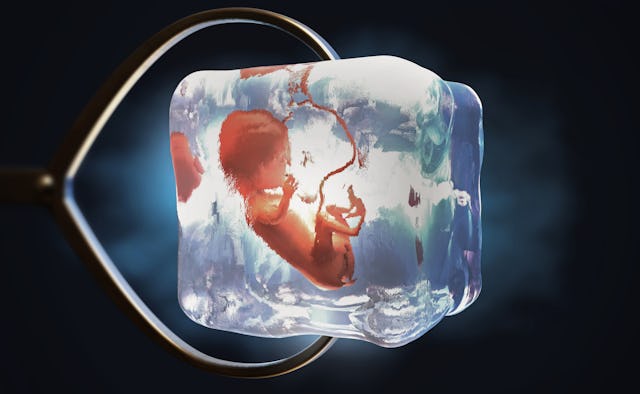Couple Gives Birth To Twins From 30-Year-Old Frozen Embryos
Parents from Oregon conceived their children with eggs donated in 1992, the oldest known successfully used frozen embryos.

A couple in Oregon welcomed twins last month with the use of donated embryos, and the new bundles of joy share a unique backstory: they’ve been on ice for thirty years. In an exclusive interview with TODAY, Philip and Rachel Ridgeway recounted their decision to choose the oldest embryos available, resulting in what some experts think is the “longest frozen embryos to result in a live birth.”
“It's a tremendous blessing,” Rachel says. “We really wanted to find those embryos that have been waiting the longest, that have been overlooked multiple times," Rachel tells TODAY. She says they wanted to know, “‘Who needs to be picked out?’”
The couple, who already shared four children, ages 8,6,3, and 1, say that twins Timothy and Lydia complete their family.
The Ridgeways aren’t the first couple to conceive with the use of aged frozen embryos. In 2020, NBC News reported that a couple in Tennessee conceived with the use of a 27-year-old embryo and then later had another child with a 24-year-old embryo. Philip and Rachel, however, are suspected of having the oldest frozen embryo to result in a birth.
Reflecting on the date their children's embryos were frozen, Philip says, “I was 5 years old when God gave life to these embryos. It’s just mind-blowing to think that, at that same point in time, somewhere else, that God was giving life to these children.”
“I was three-and-a-half. It's pretty amazing just knowing that they were created then and have waited that long for us to be able to parent them,” Rachel added.
“In a sense, they're our oldest children, even though they're our smallest children,” he added.
Philip told CNN, “We've never had in our minds a set number of children we'd like to have. We've always thought we'll have as many as God wants to give us, and when we heard about embryo adoption, we though that's something we would like to do.”
There you have it — back to the future!